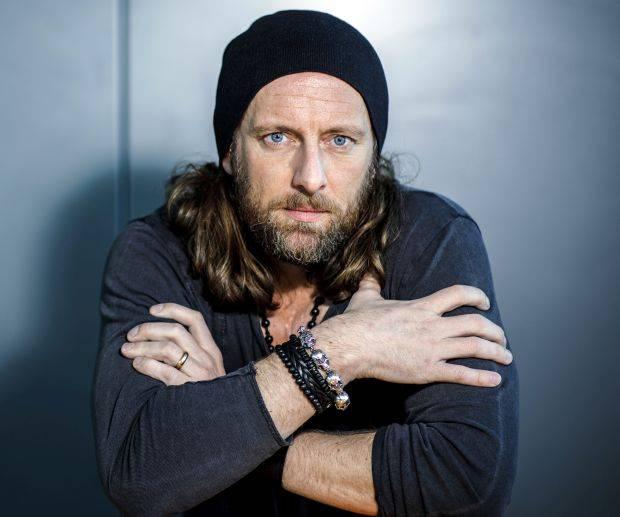
Anders Indset, business philosopher and best-selling author,
believes that the composition of any entity defines its future.
Change is inevitable and constant, but in the business world, swift market changes can precipitate boom or bust. What does it mean for a business to be future-ready when the market is fluid and unpredictable, when factors impacting business outcomes – trade wars, technology, board changes and so on – happen in the blink of an eye?
We talk to Anders Indset, futurist, business philosopher and author, who will be sharing his multi-faceted and valuable insights to the audience of business leaders and stakeholders come Oct 14-15 at the Shangri-La Kuala Lumpur, when the inaugural International Directors Summit (IDS) 2019 kicks off, organised by the Institute of Corporate Directors Malaysia (ICDM), a much-anticipated platform that brings together leaders from multiple sectors to discuss that essential business commodity – trust, and its related cohorts, integrity and governance.
Indset is lyrical about disruption and these “hyper-competitive times, ” as he terms it; more specifically, he wants us to truly understand the meaning of disruption.
“There are things that occur and seem to us as a revolution, ” he begins, “however, they are actually a reaction to changes that we either oversaw or did not understand.”
It is all fast and confusing, he relates, and the underlying forces disrupting business are now either local, global or both. “The structures of countries and national borders will become even more irrelevant, ” he predicts, stressing that “we will see an even stronger focus on sustainability, also through more regulations.”
The relationship between regulation – or its big brother governance – and business sustainability is not a simple, straightforward discussion.
“How we cope with exponential technologies and the merging of bio-tech, nano-tech and artificial intelligence, ” he advises, is in itself a force of disruption. Since Netscape 1.0. first sparked commercial Internet more than 25 years ago, the conversation has swirled around the topic of radical digital transformation, Indset says, “but what lies ahead is the actual digital tsunami.”
And what, then, is the solution – business reinvention?
Indset balances his response accordingly; “Everything seems to be at stake today and in these hyper-competitive times, driven by the battle-of-algorithms, even the smallest mistakes are punished. I recommend organisations not to start by changing everything internally and putting everything at risk, ” he says, “but to start creating something externally. Building something new that will eventually replace the old (business model).”
The problem with internal re-invention or change, he adds, is that there are many old structures that are too complex to break up.
Starting from scratch, therefore, offers more freedom. “Building a culture of creation and having a “training pitch” where people can do stuff is much easier if it is shaped in a new environment, ” he opines.
“Reinvention today is about being interested and curious, and learning how to cope with the chaos.”
Chaos can impact businesses and their boards – boards that are the steer and also a factor that determines the sustainability of a business.
“The composition of any entity defines its future, ” offers Indset, and too often, he adds, “The structure and composition of boards are defined by external factors, or by ego, not based on the essential vision and values that are outlined. This must change. It should not be about who it is today, but about ‘why’, ‘how’ and ‘what’.”
Indset is a strong believer in diversity, and this belief applies to his view of corporate boards. “Needless to say, we need more women on the board, ” he says, before expounding on the subject of self-governance and the practice of.
“Technology will take over the management part, ” he offers, before delivering a thought-provoking addendum: “A lot of today’s senior managers will become obsolete if they do not become leaders.”
And leaders are what organisations require for thorough yet meaningful self-governance, for self-governance is a crucial step in building and sustaining that trust with not only consumers and customers but also with investors and stakeholders.
Indset of the view that the challenge with self-governance is that in management there is a lack of self-awareness. “A good starting point for all, ” he says, “is not to solely focus on the financial audits and the numbers when it comes to implementing self-governance, but to actually have a self-audit once or twice a year.”
And as the institute that understands the complex web of public trust and corporate governance but also with the mandate to deep-dive into the ecosystem and take steps to transform it, ICDM has seen the value of Indset’s insights, insights that will hopefully trigger a tsunami of curiosity and re-thinking within minds at the summit, rethinking the present state of business disruption, and how to future-proof business.
“We know the “Old Economy” is dead, ” he states, “and so is the ‘New Economy’. There will be no Ferraris and yachts for everyone. What follows, in my view, is the Quantum Economy – or the Q Economy – where everything is made infinite.”
The business world at its core, Indset opines, is much more like quantum physics than the linear fixed models that have been defined. “It is chaotic and strange and follows paths of entanglement and potentiality. If we want to really understand society, ” he concludes, “we must collectively rethink the economy. We will only be able to solve societal changes, if we have a new and stable operating system for the economy.”








